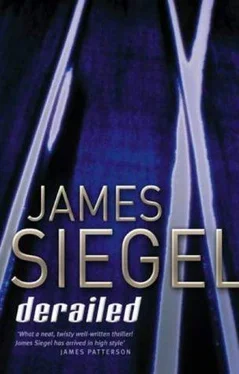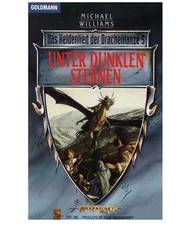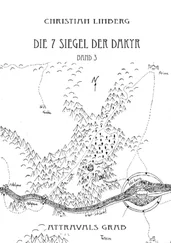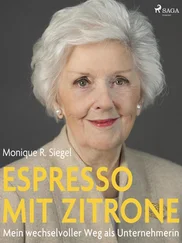“Hey, you’re a Headquarters client now.”
“Yes, that’s me.”
“So think of me as Santa Claus.”
“That’s funny. You don’t look like Santa Claus.” With his slicked-back hair and hyperkinetic mannerisms, Tom resembled Pat Riley on amphetamines.
“How do you know? Did you ever see Santa Claus?”
When Anna was small, five and a half, maybe, she’d asked me how Santa shopped at Toys R Us if he lived in the North Pole. I’d inadvertently left the store sticker on a My Little Pony.
“Nice to meet you, Santa.”
“And what does little Charley want for Christmas?”
If Tom had all day, I could’ve told him.
“Nothing, Tom. I’m fine.”
“Hey, you’re shooting with me, right?”
“Right.”
“You’re working with Frankel, right?”
“Frankel? Yes, sure.”
“Okay. Ask him what he gets for Christmas.”
What did that mean?
“All I want for Christmas is a good spot, Tom.”
“Then why’d you use us? ” he said.
But when I didn’t laugh, he said: “Just kidding.”
That night, Vasquez called my house and told me to meet him in Alphabet City at the corner of 8th Street and Avenue C.
FIFTEEN
They called it Alphabet City because it stretched from Avenue A to D in lower Manhattan. It used to be the stomping ground for Hispanic gangs, till it was invaded by an artsy crowd and became both dangerous and hip. Bodegas and galleries coexisted side by side, serving empanadas and op art.
I hadn’t been down here since I was in my early twenties. I vaguely remembered a cab ride to no particular destination that had ended here — seven of us stuffed in one cab looking for a good time. I couldn’t remember how the night ended.
Today I wasn’t looking for a good time.
I was looking for Vasquez.
Deanna had picked up the phone when he called. How are you, Mrs. Schine? he’d said to her. She’d looked just a little puzzled when she’d handed it over to me.
Business call, I'd told her later.
Vasquez had asked me if I had the money: yes. He’d asked me if I was still being a good boy (translation — no police): yes. He’d told me to meet him here in Alphabet City.
When Deanna left the room, I told him it was ten thousand and no more, did he understand? This was it.
Vasquez said sure thing, bro.
The corner of Avenue C and 8th at eleven in the morning was an accurate reflection of the neighborhood. Five Latino kids were killing time on the hood of a high-rider while a street artist was putting up a sign offering henna tattoos. No Vasquez yet.
A black man bumped into me.
“Why the fuck you don’t look where you going?” he said.
I hadn’t been going anywhere, of course; I’d been pretty much just standing there. “Sorry,” I said anyway.
“Sorry, huh?” The man was bigger than me, approximately the size of a typical SUV.
“Yes,” I said.
“What if sorry ain’t good enough?”
“Look, I didn’t see you. . . .”
The man laughed.
“That’s okay,” he said. “That’s fine. Charles, huh?”
He knew my name — the man who’d accused me of not looking where I was going knew my name.
“Charles,” he said again. “Right?”
“Who are you?”
“Didn’t I just ask you a question? You Charles or not Charles?”
“Yes, I’m Charles.”
“They call you Chuck? If you were my crimey, that’s what we’d call you.”
“No.” Chuck, Chuck, bo buck, banana fana fo fuck . . . A song other kids in the neighborhood used to have a lot of fun with when I was eight. “Where’s Vasquez?” I asked him.
“I’m gonna bring you to him. What the fuck you think I’m here for?”
I didn’t want to be brought to him.
“Why don’t I give you the money and — ”
“You ain’t givin’ me nothin’, understand? We’re gonna take a little walk.”
“How far?”
“How far?" imitating me. “Just up the street.”
He started walking, looking back to make sure I was following him, and I remembered how I used to do the same thing when Anna was small, walking with her but not with her, making sure she wouldn’t wander off in a dangerous direction. Only I was already going in a dangerous direction.
When we passed an alley between two renovated tenements, the man stopped and waited for me, then began steering me into the narrow passageway. I tried to stand my ground, until the man’s grip threatened to crush my arm and I gave up.
He threw me up against the wall. This is what happens in alleys, isn’t it, I thought: beatings and stabbings and robberies. Sometimes in hotel rooms, but mostly in alleys. I waited for the inevitable, which was going to be swift and brutal and complete.
Only the beating never came.
“Let’s see here,” the man said. And he groped me instead, running his hands up and down my legs, chest, and back. He was patting me down.
“No fuckin’ wire on you, Charles, that’s good. . . .”
“I told him I didn’t go to the police.”
“Yeah. And he believes you.”
“Look, I really need to get back,” I said, hearing the panic in my own voice and trying to inch away from the wall.
“Come on,” he said, “just over here. . . .”
I’d gone just over here when I first sat down next to Lucinda, and then just over a little more when I took her to the Fairfax Hotel, and now I was being asked to go just over here again, when all I really wanted to do was go back to that place called yesterday.
I followed the man out the other side of the alley and down a block that smelled of sauerkraut and pomade. We passed a hair salon specializing in dreadlocks and hair tattoos. The man took a left into the vestibule of a partially renovated tenement.
He buzzed a name and was buzzed back.
“Come on,” he said, holding the scratched glass door open for me. Come on again. I was taking orders these days, a new recruit in the army of the morally dispossessed. Aware that I was treading deeper into enemy territory with each and every step, but not at liberty to refuse. In this army, deserters were subject to possible execution.
Vasquez was in an apartment on the first floor. He was there, just behind the door when it opened and let us in.
I flinched when Vasquez put out his hand. I’d seen that hand do other things — to Lucinda and me. But Vasquez wasn’t looking for a handshake.
“Money,” he said.
He was dressed in do-rag chic — low-slung pants with a hint of Calvin Klein peeking out of the waistband — a ratty green sweater hanging off his shoulders. I was getting my first good look at him. And I was surprised how different he appeared from what I’d remembered, at least in the overall impression. He seemed less physically imposing, thinner and distinctly bonier. And I wondered how many criminals had gone to the chair on erroneous eyewitness testimony — plenty, probably, it being hard to get a fix on someone when he’s beating your brains in or raping your girlfriend.
I handed over the ten thousand dollars in crisp hundred-dollar bills. Feeling as if I were making another domestic purchase — a washing machine, a big-screen TV for the den, patio furniture — only this domestic purchase, of course, purchasing domesticity itself. Five thousand for Anna and five thousand for Deanna. No money-back guarantee, either. A strictly good-faith purchase when there wasn’t any.
“Nine thousand nine hundred. . .” Vasquez diligently counted to the last bill, then looked up at me with that awful smile, the one I remembered from the hotel room.
“Almost forgot,” he said, and punched me in the stomach.
Читать дальше












